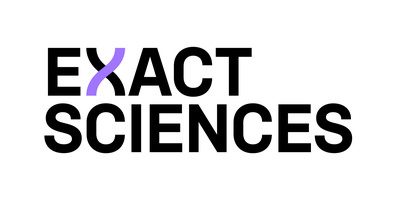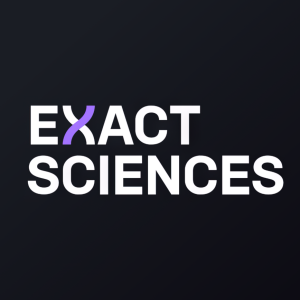Cologuard® CRC Screening Test Most Cost-Effective Test in Medically Underserved Alaska Native People
Exact Sciences (NASDAQ: EXAS) announced that Cologuard is the most cost-effective colorectal cancer screening option for the Alaska Native population, according to a study published in Mayo Clinic Proceedings. The study demonstrates that Cologuard, a non-invasive stool DNA test, produces the highest number of quality-adjusted life years (QALYs) and significantly reduces colorectal cancer incidence compared to colonoscopy and fecal immunochemical test (FIT). With challenges in screening adherence, Cologuard’s home-use capability presents a promising solution for increasing screening rates.
- Cologuard deemed the most cost-effective colorectal cancer screening option for Alaska Native population.
- Study shows Cologuard provides the highest quality-adjusted life years (QALYs) gained.
- Cologuard has high sensitivity in detecting colorectal cancer and large pre-cancerous lesions.
- No significant negative aspects reported.
Insights
Analyzing...
MADISON, Wis., April 28, 2021 /PRNewswire/ -- Exact Sciences (NASDAQ: EXAS) today announces study results published in Mayo Clinic Proceedings showing that Cologuard (mt-sDNA) is the most cost-effective colorectal cancer (CRC) screening option in the Alaska Native population, as compared to colonoscopy and the fecal immunochemical test (FIT), for a wide range of adherence scenarios. According to the model, Cologuard produced the highest number of quality adjusted life years (QALYs) gained and the largest reduction in CRC incidence.1
Colorectal cancer is the second leading cause of cancer death for men and women in the United States,2 in part because many cancers go undetected until later stages when treatment is less effective.3 Alaska Native (AN) people have among the nation's highest reported incidence rates for CRC, at 89.0 per 100,000 people compared to 45.7 per 100,000 people for the entire United States. 4
Despite the clear need, screening AN people presents significant challenges, such as lower sensitivity for cancer and pre-cancer with other stool-based tests and obstacles around getting people from their remote homes to healthcare facilities, which requires significant time, expense, and support personnel.5 The Cologuard test provides a path to overcome these barriers by offering patients a CRC screening test that allows them to collect their sample at home.
An earlier study from lead author Diana Redwood, Ph.D. of the Alaska Native Tribal Health Consortium and Alaska Native Epidemiology Center, analyzed the performance of Cologuard, a U.S. Food & Drug Administration (FDA) approved stool DNA test for colorectal cancer, in AN people. The study showed the non-invasive Cologuard test had high sensitivity in detecting colorectal cancer and large pre-cancerous lesions making it a strong candidate for increasing the screening options available for AN people.5
"My earlier research showed that Cologuard is an effective screening test in Alaska Native people," Redwood said. "This study shows Cologuard would also be a cost-effective way to screen this unique and hard to reach population."
Each strategy reduced costs and increased QALYs in comparison with no screening, with Cologuard outperforming FIT and colonoscopy screening in all adherence scenarios. With perfect adherence assumed, all screening modalities examined (colonoscopy, FIT, and mt-sDNA) decreased CRC incidence relative to no screening, with Cologuard decreasing incidence the most.1,5
A Markov model was used to evaluate the effects of the 3 screening tests over 40 years. Outcomes included CRC incidence and mortality, costs, QALYs, and incremental cost-effectiveness ratios (ICERs). The study incorporated updated evidence on screening test performance and adherence and was conducted from December 15, 2016, through November 6, 2019.5
"Cologuard is supported by Exact Sciences' built-in patient navigation system, which offers round the clock support for patients. Data shows this support increases test completion rates, especially among people, like many Alaska Native people, who haven't been previously screened," said Paul Limburg, M.D., Chief Medical Officer, Screening at Exact Sciences
With perfect adherence, CRC incidence was reduced by
References:
- Redwood DG, Dinh TA, Kisiel JB, et al. Cost-effectiveness of multitarget stool DNA testing vs colonoscopy or fecal immunochemical testing for colorectal cancer screening in Alaska Native people. Mayo Clin Proc. 2020; xx(x):1-15. doi:10.1016/j.mayocp.2020.07.035
- Siegel RL, Miller KD, Fuchs HE, Jemal A. Cancer statistics, 2021. CA Cancer J Clin. 2021;71:7-33. doi:10.3322/caac/21654
- Zauber AG, Winawer SJ, O'Brien M, et al. Colonoscopic polypectomy and long-term prevention of colorectal-cancer deaths. N Engl J Med. 2012;366(8):687-696. doi:10.1056/NEJMoa110370
- ACS. Colorectal cancer facts and figures 2020-2022. Atlanta: American Cancer Society; 2020.
- Redwood DG, Asay ED, Blake ID, et al. Stool DNA testing for screening detection of colorectal neoplasia in Alaska Native people. Mayo Clin Proc. 2016;91(1):61-70. doi:10.1016/j.mayocp.2015.10.008
Media Contact:
Cara Connelly, cconnelly@exactsciences.com, 614-302-5622
Investor Contact:
Erik Holznecht, eholznecht@exactsciences.com, 608-800-6605
Financial support and conflict of interest disclosure: Dr. John Kisiel serves, and Dr. David Ahlquist served as scientific advisors to and research collaborators with Exact Sciences Corp., distributors of the multi-target stool DNA test (Cologuard). Exact Sciences also provides support for Dr. Kisiel's lab and research team at Mayo Clinic. Exact Sciences Corp. had no role in the study design, data analyses, or manuscript preparation. Additional Information: Coauthor David A. Ahlquist, MD, died in November 2020.
About Exact Sciences Corp.
A leading provider of cancer screening and diagnostic tests, Exact Sciences relentlessly pursues smarter solutions providing the clarity to take life-changing action, earlier. Building on the success of Cologuard and Oncotype DX, Exact Sciences is investing in its product pipeline to take on some of the deadliest cancers and improve patient care. Exact Sciences unites visionary collaborators to help advance the fight against cancer. For more information, please visit the company's website at www.exactsciences.com, follow Exact Sciences on Twitter @ExactSciences, or find Exact Sciences on Facebook
About Cologuard
Cologuard was approved by the FDA in August 2014, and results from Exact Sciences' prospective 90-site, point-in-time, 10,000-patient pivotal trial in adults 50 years of age or older were published in the New England Journal of Medicine in March 2014. Cologuard is included in the American Cancer Society's (2018) colorectal cancer screening guidelines and the recommendations of the U.S. Preventive Services Task Force (2016) and National Comprehensive Cancer Network (2016). Cologuard is indicated to screen adults 45 years of age and older who are at average risk for colorectal cancer by detecting certain DNA markers and blood in the stool. Do not use Cologuard if you have had precancer, have inflammatory bowel disease and certain hereditary syndromes, or have a personal or family history of colorectal cancer. Cologuard is not a replacement for colonoscopy in high-risk patients. Cologuard performance in adults ages 45-49 is estimated based on a large clinical study of patients 50 and older. Cologuard performance in repeat testing has not been evaluated.
The Cologuard test result should be interpreted with caution. A positive test result does not confirm the presence of cancer. Patients with a positive test result should be referred for a follow-up colonoscopy. A negative test result does not confirm the absence of cancer. Patients with a negative test result should discuss with their doctor when they need to be tested again. Medicare and most major insurers cover Cologuard. For more information about Cologuard, visit www.cologuard.com. Rx Only.
Forward-Looking Statements
This news release contains forward-looking statements concerning our expectations, anticipations, intentions, beliefs or strategies regarding the future. These forward-looking statements are based on assumptions that we have made as of the date hereof and are subject to known and unknown risks and uncertainties that could cause actual results, conditions and events to differ materially from those anticipated. You should not place undue reliance on forward-looking statements. Risks and uncertainties that may affect our forward-looking statements are described in the Risk Factors sections of our most recent Annual Report on Form 10-K and any subsequent Quarterly Reports on Form 10-Q, and in our other reports filed with the Securities and Exchange Commission. We undertake no obligation to publicly update any forward-looking statement, whether written or oral, that may be made from time to time, whether as a result of new information, future developments or otherwise.
![]() View original content to download multimedia:http://www.prnewswire.com/news-releases/cologuard-crc-screening-test-most-cost-effective-test-in-medically-underserved-alaska-native-people-301278803.html
View original content to download multimedia:http://www.prnewswire.com/news-releases/cologuard-crc-screening-test-most-cost-effective-test-in-medically-underserved-alaska-native-people-301278803.html
SOURCE EXACT SCIENCES CORP








